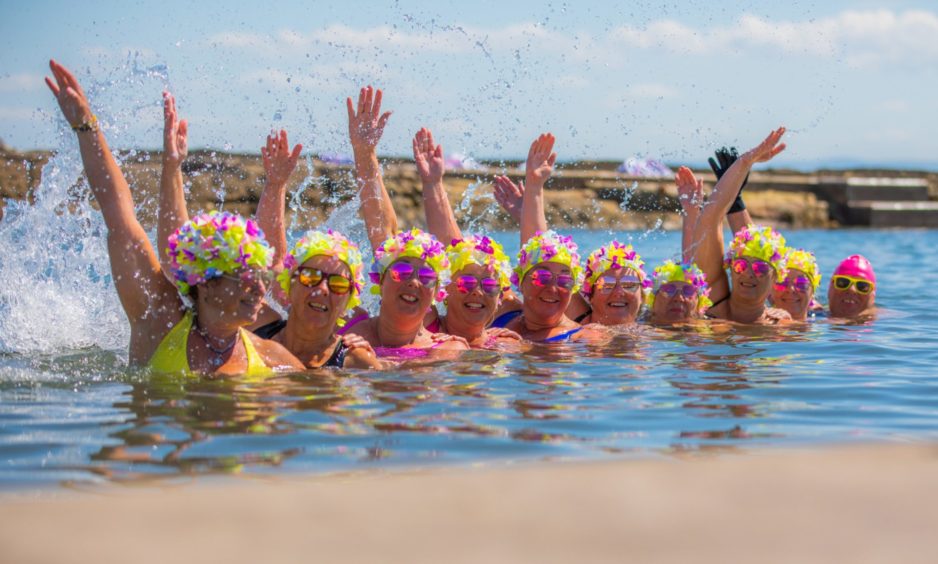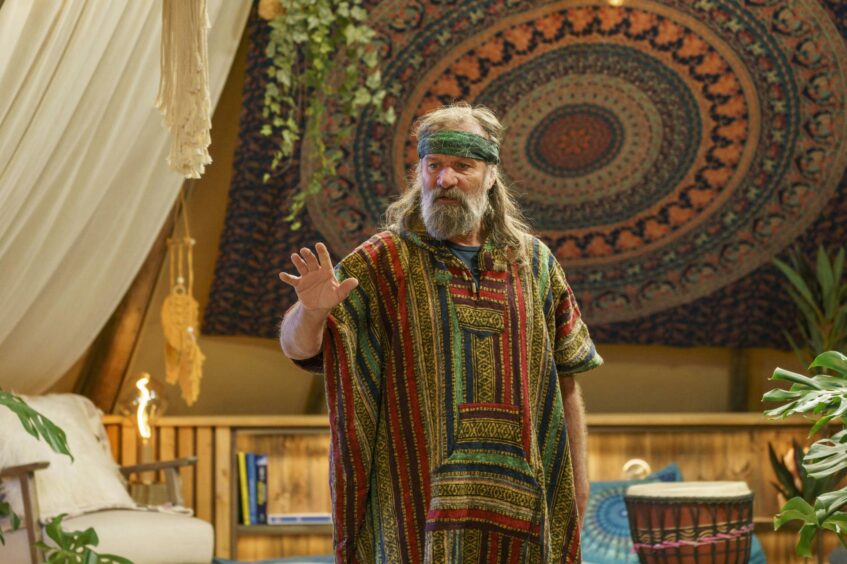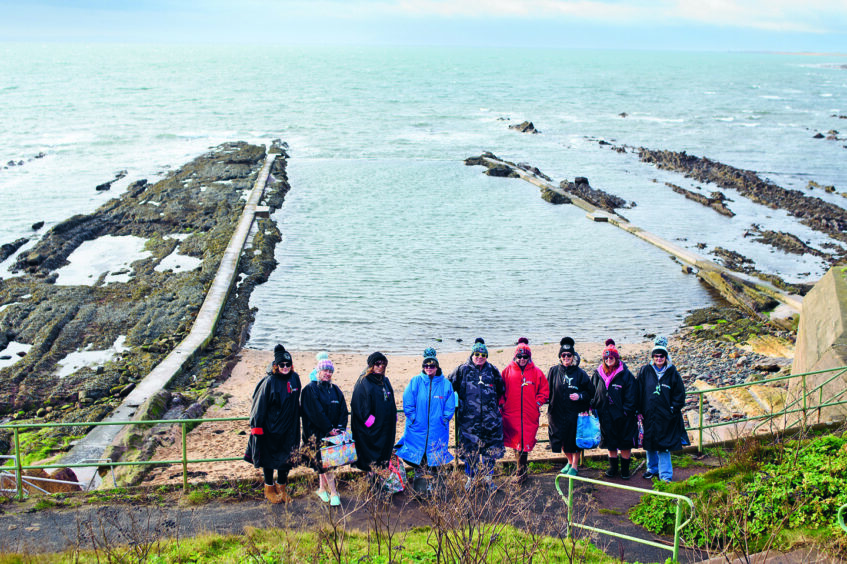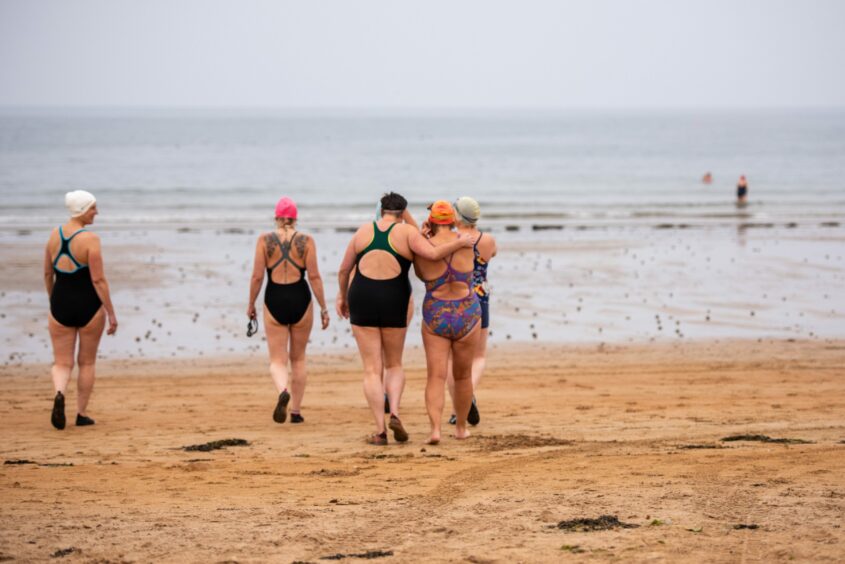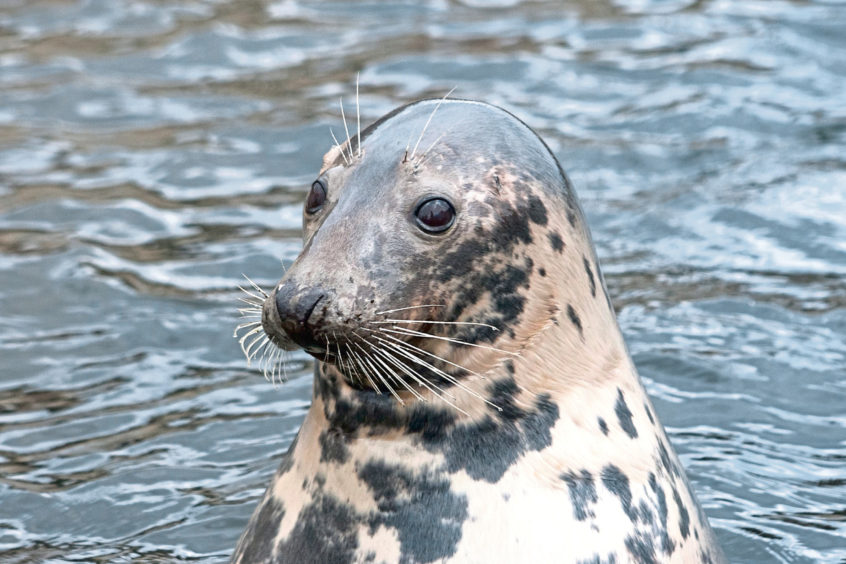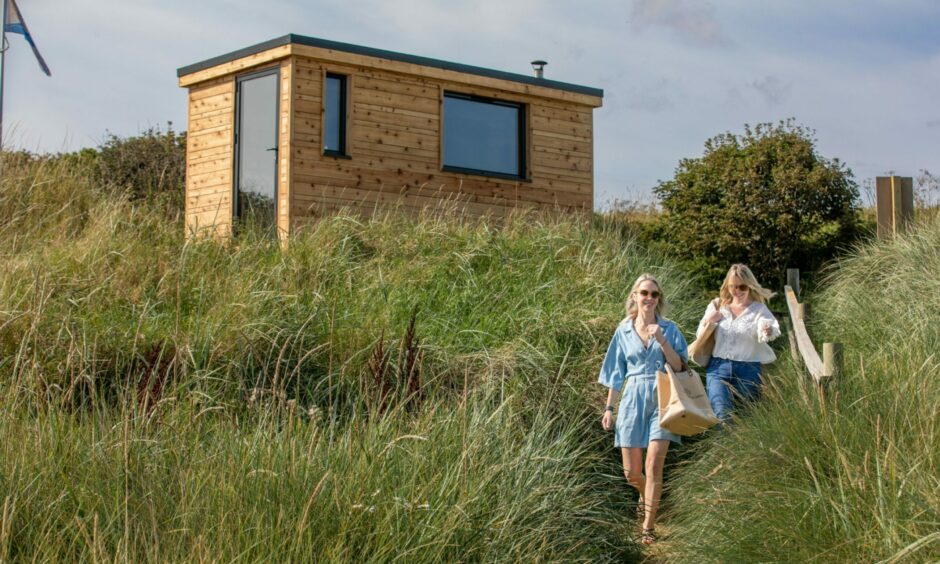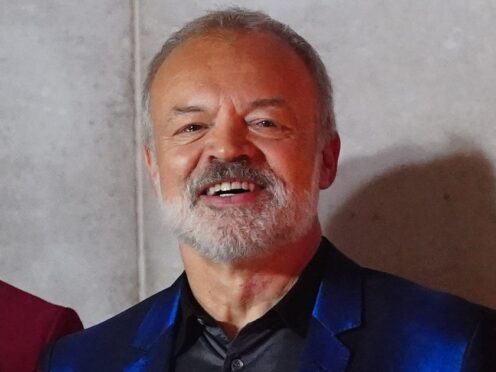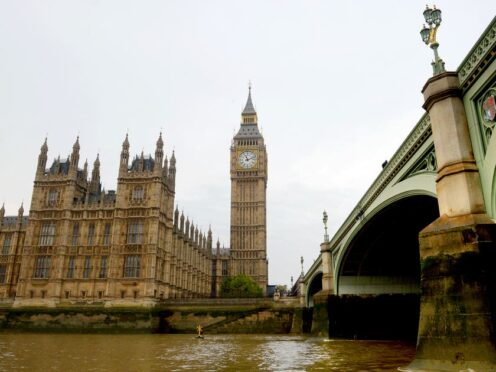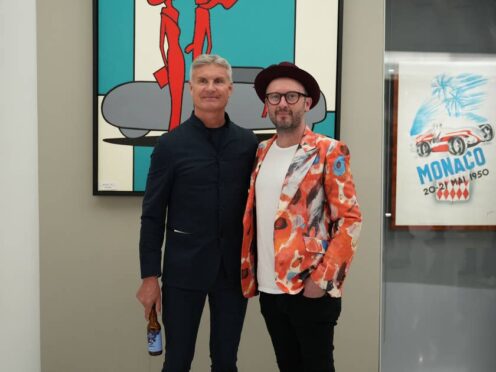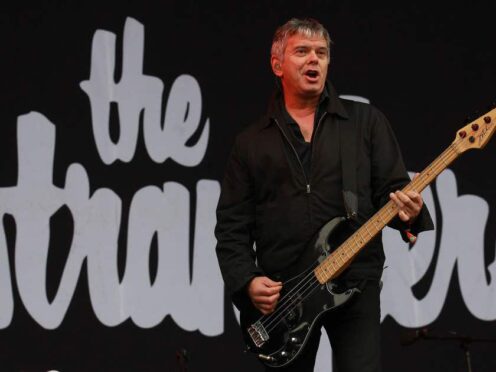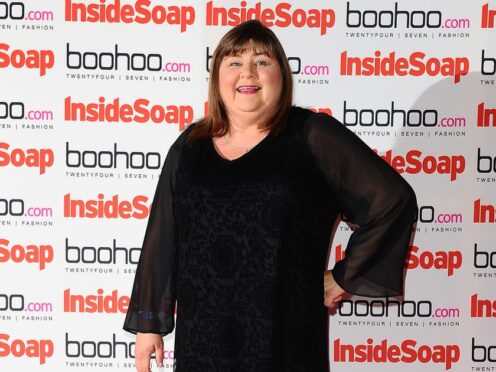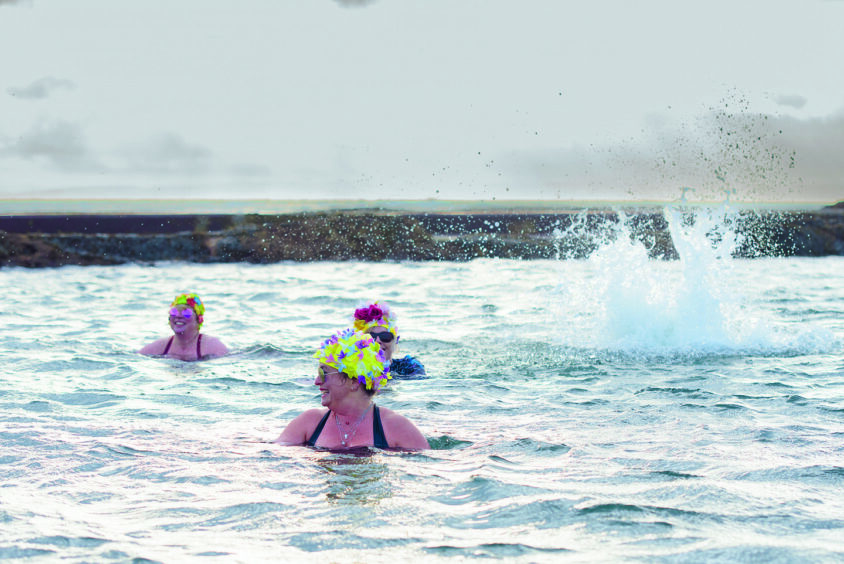
Scotland is a cold country. So why don’t we act like it?
Famous for our brutal winters, we share latitudes with Denmark and Sweden – two countries with the world’s highest standard of living – as well as Alaska.
On a map, you can draw a straight line from Dundee to Moscow.
Yet where our northern neighbours embrace their wintry wonderlands, Scotland grimaces and bears the darker months like you would an unexpected houseguest.
But according to wild swimmers and authors of new book The Ripple Effect, Anna Deacon and Vicky Allan, it’s the “mad folk” in the water who are changing the way we winter.
“People here have always swum outside,” says photographer Anna, who grew up swimming in Loch Insch in the Cairngorms and was a founding member of Edinburgh’s Wardie Bay Wild Ones.
“You can see it in the old infrastructure, the tidal pools that are being repaired and stuff like that, that we used to do it.
“We just lost ourselves as a nation for about 50 years when we stopped using the water, and now we’re all coming back to it.”
‘In my head, it was too cold’
Julie Brooks, a wild swimmer from Pittenweem’s Menopausal Mermaids group – featured in the book – reveals that changing holidaying habits played a big part in Scots’ gradual distancing from our colder native waters.
“What the older people in the village told me is that when they were kids, the tidal pool in Pittenweem had changing rooms, diving boards, all the facilities,” says US-born Julie, who has lived in the Fife village for 20 years.
“And then the cheap flights to Spain came, and people realised there was warmer water, and it put them off swimming in the cold. Once people could take a cheap holiday in Europe, and they didn’t have to swim in cold water, they lost the desire to do it.
“I lived near the ocean in the US and used to spend my summers down the shore. So for the 20-odd years that I’d been living in Scotland, I’d been looking at the sea, thinking: ‘God, it looks so lovely, I wish I could swim in it’.
“But in my head, it was just too cold. It never occurred to me that you could just put on a swimsuit and swim in the sea here.”
Could doctors prescribe wild swimming?
However, the benefits of cold water therapy are now well-documented, with Wim Hof’s method sweeping the globe and several studies showing that wild swimming can help people manage stress by activating the nervous system’s stress response – and overcoming it – in a controlled environment.
Wild swimming can also support those suffering from depression by providing ‘green’ and ‘blue’ nature-based therapies, and improve cardiovascular health.
In fact, anaesthetist Dr Mark Harper, who has conducted numerous studies about the health benefits of cold water swimming, has called for the Scottish Government to make it a public health measure, which could prescribed by doctors to treat mental health conditions.
And indeed, both Anna and Vicky have turned to the water during periods of stress.
After hitting “a real period of burnout” in her photographer career in 2018, Anna cancelled all her paid gigs and took to photographing subjects she found most moving – the people she swam with.
“I wanted to find out why they were swimming, because I feel like everyone comes to the water with a story,” she recalls. “So I collected the stories and pictures together and I wanted to do something with them, but I didn’t know what – I just found the stories incredible.”
‘My brother died and I was struggling’
Meanwhile over in Ireland, journalist Vicky was also finding her way to the water, in the aftermath of her late brother’s death.
“My brother died, and I was really struggling to know where to put myself and how to deal with things,” explains Northumberland-born Vicky, who writes about the environment for The Herald.
“I really found a lot of solace in swimming on Lough Mask in Ireland, which is where we were for our holiday that year. It felt very connected with him, so I sort of floated around in the water there.
“And then a friend of mine who was also struggling with grief over her mother said: ‘Why don’t we join this swim group on Facebook?’. And that was the Wardie Bay Wild Ones.”
Within a year of the pair meeting, their first book – Taking The Plunge – was out, focusing on the stories Anna had been collecting.
And once Covid struck, that small wave of wild swimming interest grew into a tsunami, with swimmer numbers tripling since 2019.
“Covid absolutely changed the face of things,” recalls Anna. “Our little group on Wardie Bay had about 30 or 50 members on the Facebook group pre-Covid. And now there’s about 3,000.
“You’d think a lot of it would drop off once you could start travelling again and the world went back to normal. But it hasn’t.”
The wild swimmers’ Salute to Fife
The trend is the same in Courier Country, with thousands of Dundee Dookers, St Andrews Swimmers, Bob and Bletherers, Menopausal Mermaids, Polar Bears, Blue Balls and Blue Tits springing up across Tayside and Fife – and many an eccentric tradition starting up along with them.
“When we’re out swimming, you can obviously see Fife from where we are,” chuckles Anna. “So we have the Salute to Fife, where we do a bit of a ‘taps aff’, and give you a wave!
“We told the St Andrews Swimmers about that, and the said they’d start doing it back! I can just imagine this call and response across the water!”
In The Ripple Effect, Vicky and Anna spotlight the different wild swimming communities across Scotland, and their reasons for forming – from men’s mental health support to a love of nature, sobriety to menopause and everything in between.
“For me, it’s not about swimming,” reveals Anna, whose open water experiences have included coming face to face with a bull seal, and narrowly avoiding a diving gannet.
“I’m actually quite nervous of the water and about going out of my depth. But I love being in nature and being in the cold. So for me, those are the things.
“But the community is also hugely a part of it for me – the connection that you get with people.”
Pittenweem’s Menopausal Mermaids
For Julie, the communal aspect of the Menopausal Mermaids is part of what makes wild swimming so therapeutic, with the tight-knit group going on swimming road trips, themed charity swims and even nights out together.
“When you go into the water, the layers of stress just fall off you,” she says. “You’re just in it. In the water, in the moment, in the nature. I love that aspect. And especially in the sea, there’s always something – seals singing on the rocks next to the pool, or birds flying overhead.
“And when you’ve got everybody with you, you’ve got all that but you’ve also got company. What’s that thing – a problem shared is a problem halved? Well, we’ve got lots of people so by the time we’ve all shared our problems, there’s hardly anything left of them!”
Julie says that the name Menopausal Mermaids, coined by “incredibly funny” founding member Lisa Hughes, has helped her and many others feel “more confident about being at that stage of life”.
“We didn’t necessarily all say, ‘Oh yeah, I’m going through the menopause’, Lisa just looked at us and went ‘clearly, that’s who we are’,” she laughs. “It struck a chord with us, but it’s amazing how many women love it.”
Dundee Dookers supporting male mental health
But not only women can be ‘mermaids’. And according to Anna and Vicky, a new surge of men’s wild swimming groups – most famously the Edinburgh Blue Balls – have been popping up across Scotland’s beaches.
“Men in their 40s are the highest suicide risk in the UK, it’s a group that does need support. And we’ve just been awed at what the Blue Balls are doing – they sprang up on the Edinburgh beaches in their matching budgie-smugglers, and have done so many brilliant things that the women’s groups have done, but in a slightly different way,” says Anna.
“There’s another one in Dundee, the Dundee Dookers,” she continues. “And what we’ve really found through all of this is that these groups are filling a need for a service that isn’t being provided through the NHS.”
Given the surge in uptake of wild swimming, particularly along the coast in Fife, Julie says she would like to see local authorities taking more of an interest in the maintenance of the Pittenweem tidal pools.
“The thing is, the tidal pools have all had to be taken over by local community groups because they’d fallen into disrepair,” she explains.
“But the pools need ongoing maintenance, and it’s just a group of volunteers. I think now that these pools have become community resources, it would be great if the local government would be willing to put more into them again, even just funding.”
Seaside saunas hinting at Scandi living?
After all, it’s clear that wild swimming is not just a passing craze, with burgeoning seaside sauna businesses indicating a shift towards more permanently populated beaches.
“There’s the amazing Elie seaside sauna, which we went to a few months back and it was absolutely incredible,” gushes Vicky.
“And there’s a new one, the Wild Scottish Sauna which has just opened at Kingsbarns. Doing a sauna, then a sea swim, and then going back in the sauna, is honestly one of my favourite ever things to do.
“I think we’re going to see a whole lot more saunas popping up over the years. It’s definitely the way things are going.”
And the pair believe that embracing cold water as a way of life could help bring Scotland in line with our latitudinal neighbours – and reclaim our long winters as a season of fun.
“That whole Scandinavian way of life, particularly in Scotland, is something we could benefit from – embracing the winter and really connecting with that,” says Anna.
“It’s very easy to feel low in the winter months when you live so far north. It’s cold and it’s a bit brutal and we have such short days.
“But if you can get outdoors and get that fix of the cold, especially if you combine it with a sauna – and potentially a skinny dip! – you’re going to be completely embracing the cold and actually looking forward to it.
“Having that hot cup of tea and sitting in your duvet on the sofa – how much nicer is that when you’ve done something really epic?”
The Ripple Effect by Anna Deacon and Vicky Allan is out now. The authors will appear at an event hosted by Toppings St Andrews on October 12; for more information and tickets, visit the Toppings website.
Wild swimming carries safety risks. New wild swimmers should not swim alone, and even experienced swimmers should not stay in cold water for too long. For a safety guide, check out the RNLI website.

